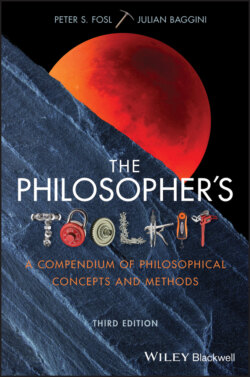Читать книгу The Philosopher's Toolkit - Julian Baggini, Julian Baggini - Страница 52
1.7 Fallacies
ОглавлениеThe notion of ‘fallacy’ will be an important instrument to draw from your toolkit, for philosophy often depends upon identifying poor reasoning, and a fallacy is nothing other than an instance of poor reasoning – a faulty inference. Since every invalid argument involves a faulty inference, a great deal of what one needs to know about fallacies has already been covered in the entry on invalidity (1.5). But while all invalid arguments are fallacious, not all fallacies involve invalid arguments. Invalid arguments are faulty because of flaws in their form or structure. Sometimes, however, reasoning goes awry for reasons not of form but of content.
When the fault lies in the form or structure of the argument, the fallacious inference is called a ‘formal’ fallacy. When it lies in the content of the argument, it is called an ‘informal’ fallacy. In the course of philosophical history, philosophers have been able to identify and name common types or species of fallacy. Oftentimes, therefore, the charge of fallacy calls upon one of these types.
